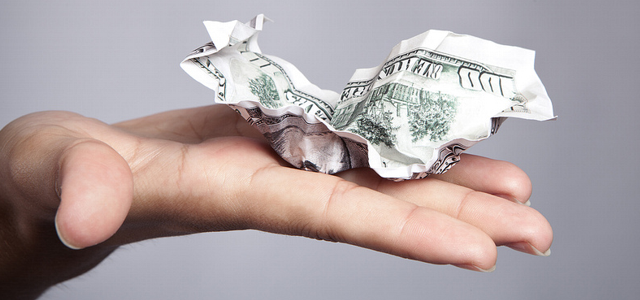Milestones in life encourage advice. In 2012, I graduated, got married, and started a job and then this year, I bought a house. I received a lot of great advice, but here is some of the worse advice I was given:
Bad Advice#1: Don’t Stay In A Job You Don’t Like

The more experienced mean well when they tell this to new graduates. They’re trying to say, “Find a job you love,” but in practice this piece of advice does not pan out like they hope. Every job is disappointing at some point. For most people, they experience a large emotional slump 6-8 months after being hired. If everyone had been encouraged to ditch their job when they feel they don’t like it, most employees wouldn’t make it past this two-month slump six months in.
Furthermore, the pressure of finding a job you really like debilitates some people from choosing a job. It turns into “The first job I take better be the job I will like for the rest of my life” or “I shouldn’t submit myself to a less desirable position than the one I want.” But sometimes, it is wise to take a job you don’t like to get the job you want. Sometimes, it is wise to take an unfulfilling job in order to have enough finances to do what you love on the side.
Instead of ditching or avoiding jobs you don’t like, be willing to take promising jobs and endure them even when they aren’t your favorite. If you have a job you dislike, figure out what skills you can build from it. This job might be just the stepping stone you need to build your future career or to make yourself a better person. Search for another job and work on the things you love on the side. Many successful artists have day jobs and many successful entrepreneurs originally worked mundane jobs.
Alternatively, rediscover the part of the job that made you apply for it. If you wanted to work at this company because you thought you’d be interacting with people and you’re stuck in the basement, talk to your employer about career development and your desire to help the company with your public relations. Give it a chance to be the dream job you thought it was.
If you’re unemployed, do something. Get a job in a different industry. If you can’t do that, volunteer. Don’t do nothing. Doing nothing is the sure fire way of being dissatisfied.
Bad Advice #2: Do It While You’re Young

People have a wide variety of opinions about what you should do while you’re young. You should learn Chinese while you’re young. You should have a wild night in Mexico while you’re young. You should backpack Europe while you’re young. You should get a tattoo while you’re young. You should sky dive while you’re young. You should date around while you’re young. It’s amazing all the stuff us young people are supposed to accomplish. About the only thing people think you should not do while you’re young is get married. But if you are married, they think you should have babies while you’re young.
When I hear all of this advice, I can’t help but shake my head. Not all young people should travel the world, jump out of airplanes, and avoid marriage like the plague.
Often when you’re young, you have an abundance of time and a lack of money. The challenge is investing that time wisely. Like with money, often times the slow, effortful investment has a better return than the one with instant volatile returns. So rather than blowing your time (and money) checking off your mentor’s bucket list, you should invest your time researching different hobbies, jobs, cities, and more in a quest for your passions.
Don’t backpack Europe just because it’s what young college graduates “should” do. But at the same time, don’t be afraid to invest your time in a trip to Europe if you think traveling could be a source of great joy in your life. Align your time (and money) with your values.
A lot of people say, “Stuff won’t make you happy. Memories will.” They especially seem to pull up this platitude when you’re buying a house (stuff to them) rather than traveling the world (memories for them). But there are memories everywhere, and it’s your attitude, not your environment, that will make them happy ones. Choose wisely each day how to spend your time, and you’ll have done everything you should do while you’re young.
Bad Advice #3: A House Is A Good Investment; Rent Is Throwing Away Money

When I started looking into buying a house, a lot of people commended my wise financial decision. One group of supporters praised me for my “good investment” while another group was glad I would stop “throwing money away” into my monthly rent. Although I’m honored that they think I’ve made a wise financial decision, this way of speaking is misleading.
First of all, a primary residence is not an investment at all. The definition of an investment is better thought of as something that pays you money. Buying rental property is an investment because you get paid rent. Buying a house to live in is not. You don’t get paid money. You pay money.
That being said it is a relatively safe store of value. When you sell, you will likely be able to get some, if not all, of your money back out of your house. Furthermore, you have tax deductions for the mortgage as well as control over the place that you’re living… so it is frequently a wise financial decision for people. Just not an investment.
Second, although it is true that you won’t get any of your rent money back, renting can be a wise financial decision. Saying that renting is throwing money away makes it sound like no one should be renting, when clearly that is not the case.
Sinking your money into a house has an opportunity cost. Every dollar you turn into home equity you’re not investing in the markets. The equity of your house may keep up with inflation, but the stock market on average has returns over inflation. If you don’t benefit much from the tax advantages of having a mortgage and can find a rent low enough, you may actually make more money renting and investing rather than buying. Furthermore, if you don’t have enough money for all the closing costs and a 20% payment, then you will have to pay extra each month on top of your mortgage payments (for “private mortgage insurance”), which is money you won’t get back.
Lastly, you could rent for your entire life and do just fine financially. Your rent will increase with inflation, but so will your investments if you keep them. Renting and shoveling away a lot of money into savings is often the right financial decision for recent graduates or early newlyweds. It’s not throwing money away, it’s giving yourself the opportunity to get some savings in the markets.
Bad Advice #4: You should pay off your mortgage early.

Pay off a 30-year fixed rate mortgage early? Likely, no, you should not.
As Bert Whitehead says, “A 30-year fixed rate mortgage is your best protection against inflation.”
And in the words of my father, if you invest the money you would have used to pay off your mortgage early, then “Any time you wanted you could slap your investments over your mortgage and be debt free. In fact, if your investments appreciate by 10% they should double in about 7 years. …Those with a millionaire mindset can have a mortgage. Those apt to spend and not save should work at being debt free and learning to save.”
If you have the diligence to save the money you would have given to the bank to pay off the mortgage early, then you’ll win out in the long run.
What’s been the worst advice given to you?
Photo, photo, photo, and photo used here under Flickr Creative Commons.